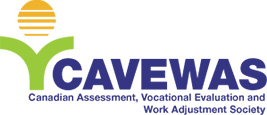NACE blog team member Chris Carlson wrote eloquently about networking for introverts earlier this year. His piece inspired me to think more deeply about the role of introversion in higher education career services. As both an introvert and the career liaison for the liberal arts student population at my university, I recently began to include material on introversion and extroversion in the semester-length career exploration series I facilitate, The Seekers. To my surprise, student feedback about these sessions has been nothing short of profound. For many students, there is a powerful sense of self-recognition accompanied by relief that they don’t need to reinvent themselves to enter and thrive in the world of work. I began to consider the implications for career advising overall, given that up to 50 percent of the general population describe themselves as introverts.
It often helps to start by defining terms. It can be easy to take for granted my Myers-Briggs training and decades to make peace with my own introversion. In informal polling I have found that most students still associate introversion with shyness or social awkwardness rather than with primary energy source. More disturbingly, they may view introversion as a flaw or deficit that warrants correction.
I like to start with basic MBTI definitions and then pose a classic question that can help students differentiate their preferred style. For example, “If you had an unexpectedly free weekend, would you rather attend several parties or catch up with a couple of friends individually?” I like this question because it challenges the false dichotomy of alone versus with people. Introverts may also prefer to spend time alone (as do extroverts at times). The difference lies in where they gain their main source of energy and how they prefer to recharge.
Our career services office, like many others, offers career fairs, speed networking events, and practice interviews for jobs or internships. With the best of intentions, we teach students to “put themselves out there,” to navigate cocktail/mocktail conversation, to develop compelling 30-second elevator talks, and to formulate responses to both hardball and softball interview questions. This is all helpful and necessary. But the nagging question remains, are there different and potentially more effective ways to broach these topics with students who identify as introverts? Do I as a counselor—albeit an introverted one—jump too quickly to tactics without first acknowledging and exploring how students feel about these processes and their perceptions of what society expects of them? I think that too often we treat introversion as something to be overcome rather than celebrated for its potential contributions.
As one example, last semester in The Seekers, I conducted a mock interview clinic in which we practiced responses in five common question areas. Halfway through the session, one brave student interjected that while she appreciated the tactical advice, none of it helped with trembling hands during actual interviews. Another student, who projected as poised and self-assured throughout the semester, jumped in and offered that the responses made her feel phony. Their comments led to a lively and connected conversation during which the students listened to and coached each other about how to reconcile internal feelings with external expectations. While their concerns were perhaps not unique to introverts, they created an important “aha” for me: that I needed to create more space within the group to be reflective and introspective about professional skills development.
I have recently started to draw on Susan Cain’s Quiet Revolution research on introversion, showing excerpts from her TED talk on The Power of Introverts where she laments external pressures to “pass” as an extrovert and helpfully differentiates introversion from shyness. One of my favorite lines is that “the key to maximizing our talents is to put ourselves in the settings that are right for us,” an exhortation to consider work environment and career choices through the lens of temperament as well as talent.
Ms. Cain’s poise and presence in a public speaking situation tends to surprise students and can start conversations about how introverts not only function but thrive in visible and influential positions. Similarly, Wharton professor Adam Grant’s research on effective leadership, The Hidden Advantages of Quiet Bosses, includes the finding that introverted leaders are more likely to engage their teams by encouraging individuals to develop their own ideas. I have found it useful to offer examples of well-recognized role models from all walks of life, from sports to business, who describe themselves as introverts, from Bill Gates, Mahatma Gandhi, and Rosa Parks, to Michael Jordan, Christine Aguilera, and Julia Roberts .
These are some additional strategies that I have found effective in provoking both reflection and discussion:
- Combining personalized career assessments to give students more self-insight. I have found that StrengthsQuest and MBTI play well together. For example, a student who shows a preference for introversion on the MBTI may also hold “individualization” as a top strength. Integrating a “strengths” perspective into an introversion/extroversion discussion encourages students to move away from a deficit mindset.
- Designing more intimate networking forums. This semester our office will pilot a home-based gathering for a limited number of students and alumni in selected fields to interact over a leisurely meal. Our hope is that such forums can complement the larger speed-networking formats and that each will each hold appeal for different types of students.
- Scheduling one-on-one follow-up appointments. While this may sound like a no-brainer, students are typically more inclined to make appointments keyed to specific deliverables rather than more open-ended discussion about areas of discomfort. While not every student needs or wants this type of support, I think it is important to remind students that the suite of career counseling tools available to them goes beyond resume tweaks.
NACE career advisers, are you having these conversations in your offices? It would be interesting to learn more about employer perspectives as well.
